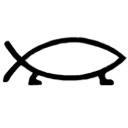Yahoo Answers is shutting down on May 4th, 2021 (Eastern Time) and beginning April 20th, 2021 (Eastern Time) the Yahoo Answers website will be in read-only mode. There will be no changes to other Yahoo properties or services, or your Yahoo account. You can find more information about the Yahoo Answers shutdown and how to download your data on this help page.
Trending News
Atheists isn't it sensible to say that you don't believe in God because you don't want to?
There is no evidence that God exists that's for sure. But there is also no evidence that God doesn't exist. So you can believe or not. Without being faced by a glaring proof that stands between you and you will. So you don't believe because you don't want to believe. I believe because I want to believe.
32 Answers
- Anonymous4 years agoFavorite Answer
Yes, they need help
- ?Lv 74 years ago
As you say "There is no evidence that God exists .. THAT'S FOR SURE".
So .. that's the evidence that he doesn't then !!
- antoniusLv 74 years ago
Reality is not whether or you want to believe it, it is truth with evidence. Religion and god belief is not reality. but is nothing but superstition basically spoon-fed to the unsuspecting child of very gullible adult. You have been trained to accept religion claims about a god, and now you have the audacity to try to claim that an atheist just does not want to believe in a god. I see that as you wanting to me like an atheists but you do not know how so you then try to have the atheist agree with your nonsense claim about he does not want to believe and should join your nonsense. Sorry that is not the way the world works.
- 4 years ago
TIMELINE OF HUMAN SUPERSTITION:
==============================
2 million BC~250,000 BC: early humans do not bury dead; bodies left to rot inplace or disposed of in rock shafts.
250,000 BC~50,000 BC: humans begin deliberate mass burials in graves without embellishments or markers
50,000 BC~15,000 BC: Numerous fertility, animal and phallilc figurines appear across Europe and Asian continents marking the dawn of animism.
15,000 BC~11,000 BC: Humans with animal masks debut the start of shamanism - a form of animism with the added belief that a special human could control the spirits.
11,000BC: Discovery of agriculture. Neolithic revolution begins transforming nomadic hunter/gatherer lifestyle to permanent settlements. Systematic writing begins allowing recordation of knowledge. Complex temple structures emerge adorned with animals and insects.
8,000 BC~6,000 BC: Solar tracking structures emerge to chart the planting and harvest seasons
5,500 BC: Animal and human sacrifice begins. Existing solar structures modified with sacrificial altars. The era of the sky god begins.
3,100 BC: Immortalization of Egytian pharaohs begin. Royal family and court members that belong to a particular pharaoh are willingly sacrificed and buried around his tomb to continue serving him in the afterlife as a god. The era of the demigod begins.
2,200 BC: Coffin Texts appear. Spells and enchantments are written on coffins by priests as a kind of backdoor hack for commoners to gain entrance to the afterlife. The tradition goes viral and the afterlife is no longer the sole domain for royalty. The Age of Immortality Begins.
1,300 BC: Influence of divine kings give way to divine commoners. Gods begin speaking and acting through peasants, prisoners and societal outcasts by interpreting dreams, numerology, astrological portents, prophecy, or dire warnings through convoluted parables. The Age of the Prophets begin.
1,010 BC: Prophets begin anointing kings with oil as a sign of a "mashiach" or divinely appointed human to change the course of Hebrew destiny. Other groups deploy their own legends of a mashiach. The Age of the Messiah begins.
586 BC: Destruction of the first Jerusalem temple. Themes of deliverance enter the picture as prophets begin foretelling the destruction of the Roman occupation by a messiah from the Davidian lineage and replaced with a brand new Israel annointed by god that would be the envy the world. The Age of Salvation begins.
54 AD: Paul of Tarsus begins building numerous churches throughout Ephesus, Thessaloniki, Philipi and Corinth in the religious vacuum that was caused by the expulsion of the Jews and several other religious cults in the Roman empire. Combining the idea of salvation and sin, Paul transforms the fledgling Christian cult into global proportions. The Age of Monotheism begins.
1492 AD: Discovery of America kicks off a major spiral in Catholic influence as the idea of monotheism is questioned. The church scrambles to piece together a working theme to account for people born much too early in lands much too far away. In dismay, some bishops begin to offer salvation in exchange for money. The Age of Discovery begins.
1600 AD: Eccentric intellectuals begin using science to identify proper cause and effect relationships. Knowledge gives way to peculiar insight that challenges long held beliefs and advances skepticism of traditional faiths for the first time in history. The Age of Reason begins.
1965 AD: Acceleration of historic and scientific data is made possible by the invention of the computer. Thirty years later, the internet goes online. Humans are rapidly exposed to an endless wealth of knowledge. Information accumulates at a geometric rate and accelerates our understanding of human history and how reality works. Atheism begins its formidable climb in direct proportion to the information available while a sharp decline in religiousness is simultaneously recorded. By the end of the 20th century, the internet penetrates remote areas of the world. Large, global declines in superstitious beliefs emerge on surveys, polls and scientific papers. Political groups and religious leaders begin declaring war on Atheism by slandering materialist ideas like biology and cosmology. Scientific knowledge is threatened from religious groups filing lawsuits to ban certain types of information in public schools. Atheists, scientists and other secular groups fight back through a visceral display of dialog, debate, and publication of books that challenge the idea of god and other superstitious beliefs for the first time in human history. The Age of Information begins.
- How do you think about the answers? You can sign in to vote the answer.
- RicardoLv 74 years ago
Atheists isn't it sensible to say that you don't believe in God because you don't want to?
- Absolutely correct. It is a proven fantasy and do not want to believe in it.
But there is also no evidence that God doesn't exist.
- And when you get into sixth grade you will learn that you cannot prove a negative.
I believe because I want to believe.
- Knock yourself out. The problem comes when you want EVERYONE to believe in your fantasy.
- LordJaggedLv 64 years ago
No, that isn't sensible at all. Can you make yourself honestly believe that if you eat a small pebble covered in honey and mayonnaise that you'll turn invisible for an hour? Try it, do you honestly believe that? You might be able to say out loud that you do believe eating a honey and mayo covered pebble will turn you invisible but do you honestly believe that? It's the same thing for gods with me, I could lie and say I believe in a god but it just wouldn't be true.
- ?Lv 74 years ago
I don't accept nor reject a premise based on my personal desires. My desires have no effect on reality.
I reject belief in God (the Judeo-Christian--Islamic godhead) on the basis that it has contradictory attributes and is therefore logically impossible, like a married bachelor or a square circle -- Those things CANNOT exist by definition. Also, whenever people study something real, their ideas about that thing will converge over time and that doesn't happen with ideas about God... Instead, religious opinions are constantly fragmenting into ever more narrow interpretations unless there is a strong central authority using or threatening force to get conformity. If you have the truth, you do not need to use coercion and all opinions will converge over time.
I don't have any control over those things. And I cannot force myself to believe in spite of them and it would be dishonest to even try.
- Mr. BluelightLv 74 years ago
No, this isn't sensible. I don't believe in God because I see no evidence that God exists.
- 🤔 JayLv 74 years ago
I would love to believe in God and Santa and the Tooth Fairy.
But that's not sensible. That's delusional.
“It is far better to grasp the universe as it really is than to persist in delusion, however satisfying and reassuring.”
---- Carl Sagan






